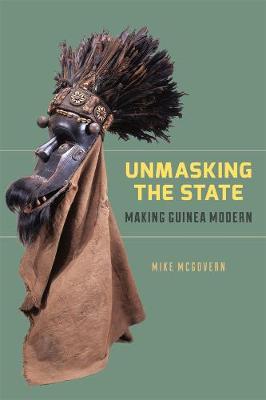When the Republic of Guinea gained independence in 1958, one of the first policies of the new state was a village-to-village eradication of masks and other ritual objects it deemed "fetishes." The Demystification Program, as it was called, was so urgent it even preceded the building of a national road system. In Unmasking the State, Mike McGovern attempts to understand why this program was so important to the emerging state and examines the complex role it had in creating a unified national identity. In doing so, he tells a dramatic story of cat and mouse where minority groups cling desperately to their important - and outlawed - customs. Primarily focused on the communities in the country's south-eastern rainforest region - people known as Forestiers - the Demystification Program operated via a paradox. At the same time it banned rituals from Forestiers' day-to-day lives, it appropriated them into a state-sponsored program of folklorization. McGovern points to an important purpose for this: by objectifying this polytheistic group's rituals, the state created a viable counter example against which the Muslim majority could define proper modernity.
Describing the intertwined relationship between national and local identity making, McGovern showcases the coercive power and the unintended consequences involved when states attempt to engineer culture.
- ISBN10 0226925102
- ISBN13 9780226925103
- Publish Date 29 November 2012 (first published 1 January 2012)
- Publish Status Active
- Publish Country US
- Imprint University of Chicago Press
- Format Paperback
- Pages 312
- Language English
- URL http://wiley.com/remtitle.cgi?isbn=9780226925103
